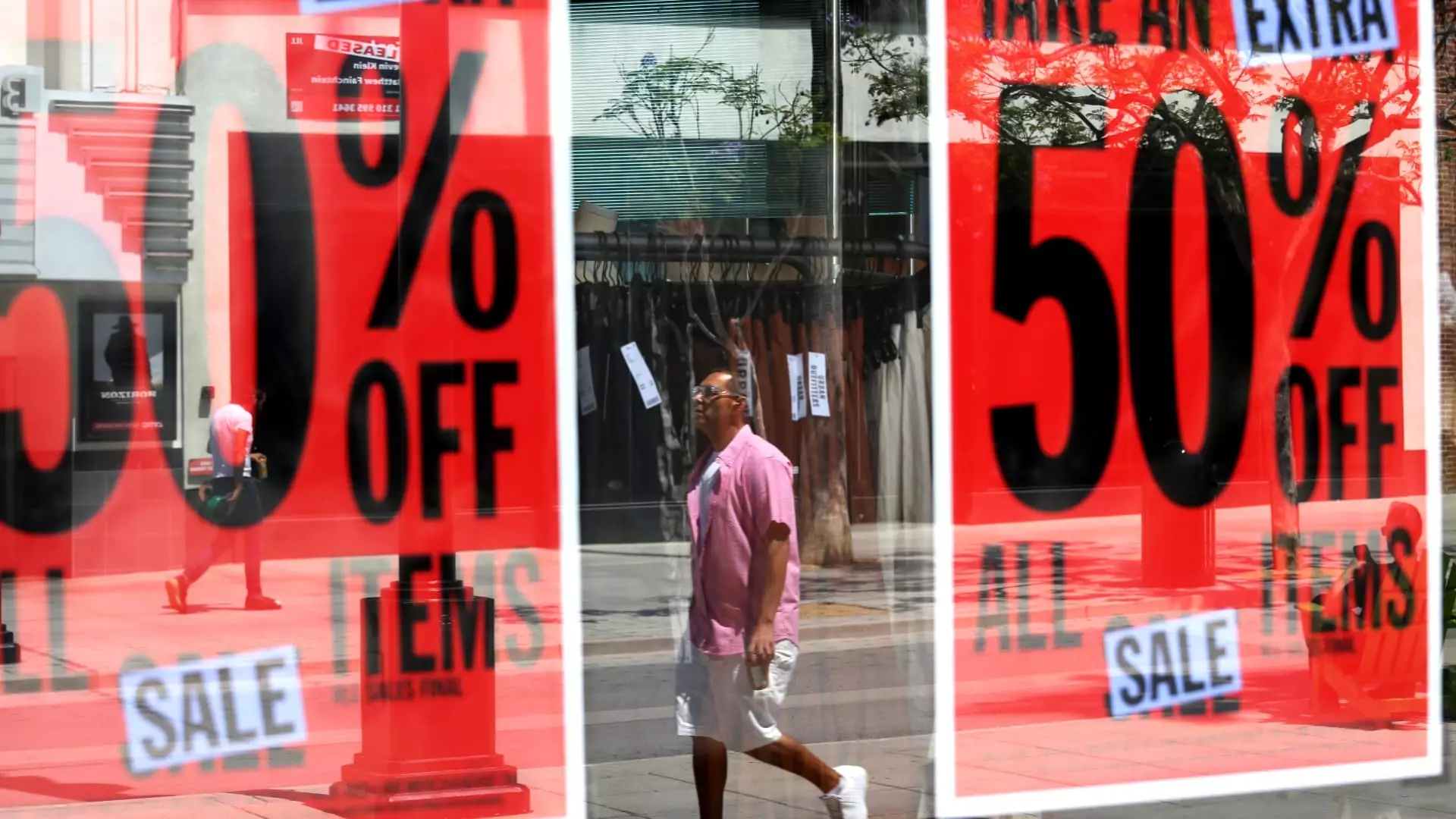If the retail world thought it could slowly crawl back to normal post-pandemic, the unexpected turbulence of President Trump’s trade war dealt a crushing blow. Retailers are now stuck in a quagmire, trying to forecast their futures while contending with erratic consumer behavior fueled by rising tariffs. Yet, amidst this chaos, some brands have pivoted ingeniously, turning a crisis into a leverage point. By framing tariffs not as a regulatory burden but as a pressing reason for consumers to act now, these retailers are crafting clever marketing strategies. The urgency created not only plays to the consumer’s fear of rising costs but also capitalizes on the psychology of scarcity, effectively pushing shoppers to open their wallets before it’s too late.
The Price of Anxiety: A New Consumer Mindset
In a climate where uncertainty reigns, the consumer psyche experiences a shift. People who might have previously indulged in leisurely shopping sprees are now inundated by mixed messages and fear—fear of rising prices and fear of potential shortages. According to marketing experts, not only are consumers buying more during this window of uncertainty, but they are also increasingly opting for large-ticket items. After all, why wait until prices skyrocket? This change in purchasing behavior can be attributed directly to how brands leverage the threat of tariffs. Retail experts argue that some aggressive pre-tariff promotions have unexpectedly inflated spending numbers, as many shoppers aim to outsmart the upward trend in costs.
Brands That Get It: Humor Meets Shortages
Take, for instance, the luggage company Beis. In a rather ingenious move, they didn’t shy away from addressing the tariff crisis head-on. Their candid communication with customers didn’t just tread lightly around the topic; it embraced the chaos with humor. In one memorable message, they stated, “This tariff situation is a complete dumpster fire, and we’re all getting burned.” This tongue-in-cheek approach alleviates political tension while inviting consumers to take preemptive action. By leaning into the absurdity of their predicament, Beis has turned a confusing situation into an opportunity – urging shoppers to buy now while prices remain stable. It’s a bold move, but when you’re facing a looming crisis, brick-and-mortar bravado counts for little; transparency and humor can form a tangible connection with consumers.
A Lesson in Retail Flexibility
What is especially worth noting is how smaller brands, often seen as underdogs, are navigating this crisis. While larger retailers have robust, diversified supply chains allowing them to shift gears, smaller brands lack the global options to weather the storm as effectively. Consequently, they’re embracing pre-tariff promotions to bolster immediate cash flow, which could mean the difference between survival and failure. While larger businesses can absorb some of the shocks, these smaller entities often operate under tighter margins. They are acutely aware that the slightest downturn in consumer confidence can spell disaster. So, when faced with existential threats, adaptability becomes not just a strategy—it’s a lifeline.
The Power of Urgency: Reality Check for the Retail Sector
As retail companies attempt to stay afloat, there is a balancing act at play: the immediate need to generate revenue versus the long-term vision of maintaining brand integrity and customer loyalty. Many retailers are implementing steep discounts as a means of boosting cash flow, resulting in a peculiar trade-off. This action may temporarily inflate sales figures, but at what cost? Consumers may feel prompted to buy now, but if prices normalized again, what will that do to their future purchasing behaviors? Retailers must carefully calibrate this urgency, lest they inadvertently normalize a discount-oriented purchasing culture.
Navigating the Dangers of Political Fallout
In today’s polarized climate, brands must also tread carefully on the political tightrope that tariffs represent. Marketing experts assert that avoiding alienation is paramount; retailers don’t want to take sides in a debate that can evoke visceral reactions from consumers. Therefore, humor and transparency can serve as effective tools to neutralize the inherent divisiveness of the topic. By crafting a message that resonates with humor, retailers can maintain customer goodwill while drawing attention to their products. This approach cleverly sidesteps the potential landmines of political speech, allowing them to focus on the real urgency at hand—buying before tariffs raise prices.
Ultimately, as these retailers continue to navigate the tumultuous waters of tariffs, one thing becomes clear: flexibility, courage, and a touch of wit could very well decide which businesses thrive and which fade away in the trade war’s shadow.

